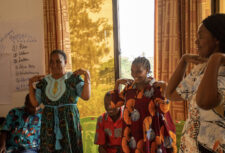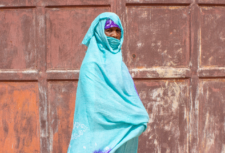Disclaimer: This article is more than 8 years old, and may not include the most up-to-date information or statistics. Please verify information with more recent sources as needed, and if you have any questions contact our Press Office.
21 May 2015
Anti-Slavery International argues in a newly published paper that the levels of abuse, exploitation and control experienced by children as a result of child and early marriage can often meet international legal definitions of slavery and slavery-like practices, such as forced labour and trafficking.
The issue of child, early and forced marriage and its impact on health and education has been brought to the forefront of the international development agenda in recent years, but the issue has not been adequately considered as a human rights one, in particular as an issue of child slavery.
Anti-Slavery International argues that child and early marriage can be qualified as slavery in accordance with the international law definition if one or more of the following indicators are present:
- When the ability to refuse, leave or end a marriage is denied, thereby fundamentally compromising the child’s freedom of movement and right to liberty and security of person;
- When the conditions of marriage mean that a child spouse is exploited or denied freedom of choice by either their spouse or in-laws regarding any individual and personal matter from learning and attending school, to earning an independent income, to consent to sexual relations and/or is intimidated into working longer hours than his or her spouse or in-laws through threats of violence, divorce or the withholding of food or money;
- When a child spouse is subject to rape, beatings or murder without recourse to law or society for protection or redress.
In addition, Anti-Slavery International proposes that instances of child and early marriage in which child spouses are compelled to undertake work or service under the menace of any penalty and for which they have not offered themselves voluntarily should be considered forced labour.
Cases of child and early marriage in which the child is moved from one place to another for the purposes of exploitation, sexual or otherwise, constitute child trafficking. Interestingly, the ILO has expressly qualified the trafficking of children for sexual exploitation as forced labour.
The paper calls international institutions to explicitly recognise key incidences of child and early marriage as constituting slavery and slavery-like practices and take appropriate action to combat them as slavery abuses.
Download the PDF: Behind Closed Doors





